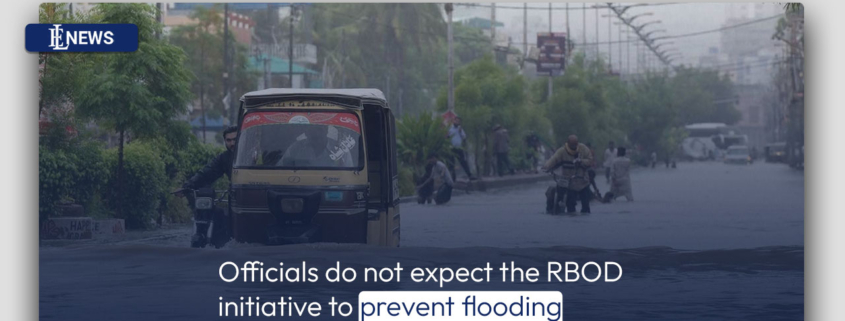Officials do not expect the RBOD initiative to prevent flooding
Sunday, the Sindh Minister for Planning and Development, Mohammad Younus Dagha, directed the secretary of the Irrigation Department to prepare a plan to reduce the risks to the Sukkur Barrage’s structure, the flooding of cities and villages on the right bank of the Indus River, and the rehabilitation of Manchhar Lake.
Read more with EL news: Sindh caretaker government plans to legalize unlawful construction
In a meeting convened by the chairman of the Sindh Planning and Development Department, Syed Hassan Naqvi, the secretary of irrigation, and engineers and other officials of the Sindh irrigation department, the directives were issued, according to an official statement.
The irrigation secretary updated the meeting on the status of the Right Bank Outfall Drain (RBOD) project. It was reported that RBOD remains a sick enterprise and that toxic effluent from the right bank continues to be released into Manchhar Lake.
The meeting was informed that there are no active projects or plans that could ameliorate the situation. Even if the RBOD project is completed, it will not prevent inundation in the districts of Kambar-Shahdadkot, Larkana, Dadu, and Jamshoro, the meeting was informed.
These regions, which were severely impacted by the floods of 2011 and 2022, will continue to be at risk unless measures are taken to divide flood waters into distinct zones with independent discharge systems into the river.It was also reported that any recurrence of the 2011 superfloods could imperil the structural integrity of the Sukkur barrage unless a plan is devised and implemented to divert excess water safely into the Nara desert.
The Minister Dagha ordered the Irrigation department to take immediate action to prepare plans for the revision and reactivation of the RBOD project, which ensures the rehabilitation of Manchhar lake, the diversion of flood water from the upper right bank region into the Indus River, and the diversion of flood water into the Nara desert.
These programs are essential to preventing losses to households, agriculture, and infrastructure of trillions of rupees every few years.
The province of Sindh, according to Dagha, is the most vulnerable to the effects of climate change, and we must take immediate, sustained action to make our infrastructure more resilient.



